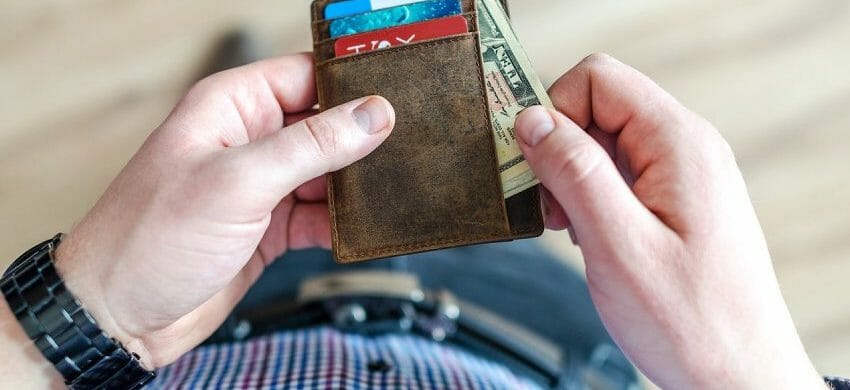Last Updated: January 26, 2024
Validate, Negotiate, and Document to Resolve Collections

Disclaimer: Pacific Debt, Inc. is not a law firm and this article should not be construed as legal advice. Only a licensed attorney in your state can provide legal advice.
If you have been notified that a debt has been turned over to collections and want to pay it off, how do you go about it? Not all debts are yours – there could be a bad address or telephone number attached to the bill, the bill could be too old to collect, or it could be a scam.
How Your Debt Gets to Collections
If you fail to pay a bill, it most likely will get sold to a debt collector. It is a last resort for the creditor – they make money from the sale and the debt is off their books. This usually happens between 90 and 180 days of the delinquency. At that point you no longer owe the money to the original creditor, you now owe it to the debt collector. The debt collection agency might even sell your debt to other collection agencies.
How does Collections Affect Your Credit Report?
Once your debt goes into collections, it is then labeled as “In collection” on your credit report and your overall score might be affected. Your payment history is extremely important to the credit reporting agencies. The label will stay on your credit report for, in general, 7 and one-half years from the date it went delinquent.
If the collections agency or original creditor determines it is worth the hassle, you may be taken to court. Make certain you don’t ignore the summons letter. It won’t go away and you could end up with your wages garnished. Before you pay a debt collector, you should take some time to check out and inquire about the claim.
How to Pay a Debt in Collections
Step One: Verify That You Owe the Debt
Before you rush off to pay that scary debt collector, check to make sure that it is your debt and has been turned over to a collections agency. Then determine if you should pay it off.
Check your credit statement: there are three major credit reporting agencies, TransUnion, Equifax, and Experian. You can order one free report yearly from each company without harming your credit.
Ask the following:
- Did I incur the debt?
- If it is not yours, notify the lender, the debt collector, and the credit reporting companies
- Over the last 5 years, more than $10.2 billion in debt was disputed and removed from TransUnion credit reports
- Does the debt show up on any of your reports?
- If it doesn’t, double-check if you owe the debt in the first place
- Is the amount correct?
- Who is the most current debt collector?
- Debts are commodities that are bought and sold like mortgages
- How old is the debt?
- If it is older than your state’s statute of limitation (generally 4-7 years), the creditor may not be able to sue you to collect on the debt.
- If you declared bankruptcy, was this debt included in the settlement?
- You should strongly consider contacting a professional for assistance
Step Two: How Much Can You Afford to Pay Collections
The debt collection agency will most likely want the entire debt paid off immediately. However, if that is not an option, you may be able to work out a payment plan agreement with the collection agency. Keep in mind that you are entering into a legal agreement and this can reset your seven-year statute of limitations to bring the debt current.
1. Lump Sum Payment – It’s fast and satisfies the collector. You may be able to offer a lower amount in exchange for that lump sum. Negotiating a lower payment can affect your credit score.
- Offer a lump sum payment of 30-80% of your total debt amount.
- The closer to 7 years from the last payment, the more willing the debtor should be to settle
- Settlement can have a tax consequence because the IRS views the difference between the entire debt and the settled debt as income
2. Installment Payments – spread out payments and pay off the sum. The downside is that payments may reset the 7-year clock. This will probably continue to hurt your credit rating if you fail to make the payments.
You may want to read how to deal with debt collectors when you can’t pay if you’re tight on funds.
Step Three: Contact the Debt Collection Agency
When you contact the debt collection agency, always get the following information:
- The agent’s name and direct contact information
- Ask about the following
- Will the agent be able to remove the paid account from your credit report or at the very least mark it as “paid as agreed upon”
- Lump payment and settlement if desired
- Installment payment amounts and time frame
- Before paying anything, make sure to get any deal in writing first
- Must include the total payment amount
- Payment schedule
- What will be reported to the credit agencies
If you hire a third party to negotiate for you, make certain they are a reputable company. Pacific Debt, Inc. is an established and reputable company with more than a decade of experience settling credit card and other unsecured debt.
Step Four: Make a Payment
Once all your paperwork is in order, make a payment.
- Make a copy of the check and keep it with your payment agreement
- Send the check certified with the return receipt requested
- DO NOT allow access to your bank account!
Step Five: After the Bill is Paid
Always ask for a letter of completion from the company. After 30 days, check your credit report to see if the debt has been removed or labeled correctly. Keep all paperwork related to this debt in a place where you can find it easily. The debt may rear its ugly head again and you will need to prove that it is paid per your agreement.
Harassment and Scams
Debtor collectors have a reputation for being unpleasant. They may constantly call you or harass you at work. In addition, with so many people having trouble making ends meet, there are a lot of scammers out there trying to take advantage of desperate people. Always make certain that you check the debt to ensure that it is yours. Never let anyone have access to your bank account. And be aware that harassment is against the law.
For more information on harassment, check out our article Common Myths and Scare Tactics Used by Debt Collectors
Because debt collection can include questionable actions, debtors have rights and protections guaranteed by the federal (FDCPA) debt protection laws. Your state may have additional protections in place.
What If You Don't Recognize the Debt?
If you receive a letter from a collection agency about a debt you don't recognize or believe is inaccurate, don't ignore it. There are steps you can take:
First, send the collection agency a [[debt validation letter]] within 30 days. This requires them to verify details about the debt and prove you actually owe it. Stop any payments until they can validate it.
If their response doesn't resolve the discrepancy or you still dispute owing the debt at all, send a formal written dispute listing the reasons why. The Fair Debt Collection Practices Act requires them to stop collections until they have investigated.
If you suspect identity theft or fraud is behind the incorrect debt, you also need to place a fraud alert and get copies of your credit reports as soon as possible. Then report the identity theft to the FTC and file a police report. Getting proof there is fraudulent or inaccurate information connected to your identity is important for stopping continued issues.
More on Debt Collection Harassment and Scams
While debt collectors do sometimes resort to pressure tactics, it's illegal for them to harass, threaten, or verbally abuse you. Recognizing their scam tactics can help avoid being tricked into paying debts never owed:
- Never pay debts just because someone calls demanding payment. Always independently verify who they are.
- Don't fall for threats or calls demanding immediate payment or legal action.
- Fake collection calls may spoof phone numbers to appear legitimate.
- If something seems suspicious, directly contact the original creditor about the supposed unpaid debt.
- Report any abusive, deceptive, or unfair practices to the Consumer Finance Protection Bureau.
After Paying Off the Debt Collection Account
Once you pay or settle the debt, always get a confirmation in writing from the collection agency. Keep this for your records in case the account inaccurately remains on your credit report. Within 30 days of your final payment, check your credit reports to ensure the collection account is updated properly as paid or settled.
If it incorrectly still says "in collections" or has no updates, you need to dispute the inaccurate information to require an investigation and correction. Gather any documentation related to paying or settling the debt and send copies with your dispute letter. Under the Fair Credit Reporting Act, credit bureaus must complete investigations within 30-45 days.
FAQs
Conclusion
Dealing with debt collectors is often stressful, but being proactive can help resolve the situation most beneficially. Start by validating the details to ensure the debt is yours and the correct amount. Check relevant time limits that could impact collection rights.
Communicate with collectors to negotiate affordable repayment plans or settlements, get all agreements in writing, and keep detailed records. Follow up to ensure proper credit bureau updates too. While unpaid collections hurt your credit, positive actions like payment plans show responsibility.
And over time, paid or settled collection accounts will expire from your report. By asserting your consumer rights and taking strategic actions, you can work through collections in a manageable way while rebuilding your financial health.
Pacific Debt, Inc
Pacific Debt, Inc. is a debt settlement company that works with debt collectors and creditors to settle debts for a lower amount than you owe. Pacific Debt, Inc. has settled over $300 million in debt since 2002. If you’d like more information on debt settlement or have more than $10,000 in credit card debt that you can’t repay, contact Pacific Debt, Inc. We may be able to help you become debt-free in 2 to 4 years.
Pacific Debt, Inc. is proud to be consistently named one of the best debt settlement companies for years. In 2020, our debt specialists earned two #1 rankings for customer service. We are also accredited with the Consumer Debt Relief Initiative (CDRI) and are an A+ member of the Better Business Bureau. Our rankings in Top Consumer Reviews, Top Ten Reviews, Consumers Advocate, Consumer Affairs, Trust Pilot, and US News and World Report are consistently good.
Pacific Debt is currently providing debt relief coverage in the following states:
Alabama, Alaska, Arizona, Arkansas, California, Colorado, District of Columbia, Florida, Idaho, Indiana, Kentucky, Louisiana, Massachusetts, Maryland, Michigan, Minnesota, Missouri, Mississippi, Montana, North Carolina, Nebraska, New Mexico, New York, Oklahoma, Pennsylvania, South Dakota, Texas, Utah, Virginia, Wisconsin
* Other states can be connected to one of our trusted partners
* Other states can be connected to one of our trusted partners more information, contact one of our
debt specialists today. The initial consultation is free, and our debt experts will explain your options to you.
Reduce Your Credit Card Debt By Up to Half

BBB Reviews | 4.9/5.0 Rating









 Do Not Sell My Personal Information
Do Not Sell My Personal Information